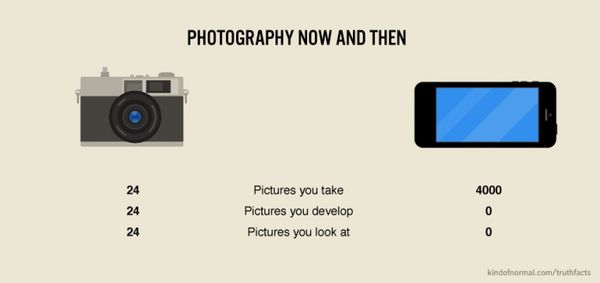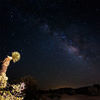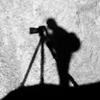ISO does it make a difference?
May 22, 2015 10:37:24 #
paulrph1
Loc: Washington, Utah
Does it make a difference if I get a lens that is f2.8 or larger as compared to an f4 since now with digital the graininess is not as prevalent as it was with during the film days. Or can I get the cheaper f4 lens and adjust the ISO to compensate? It is only one stop. During film that made a big difference but with digital it seems to not be so dramatic.
May 22, 2015 10:39:18 #
paulrph1 wrote:
Does it make a difference if I get a lens that is f2.8 or larger as compared to an f4 since now with digital the graininess is not as prevalent as it was with during the film days. Or can I get the cheaper f4 lens and adjust the ISO to compensate? It is only one stop. During film that made a big difference but with digital it seems to not be so dramatic.
It would depend on the camera you are working with.
May 22, 2015 10:43:42 #
RWR
Loc: La Mesa, CA
paulrph1 wrote:
Does it make a difference if I get a lens that is f2.8 or larger as compared to an f4 since now with digital the graininess is not as prevalent as it was with during the film days. Or can I get the cheaper f4 lens and adjust the ISO to compensate? It is only one stop. During film that made a big difference but with digital it seems to not be so dramatic.
You have better eyes than me if you can see much, if any, difference in a one stop change in ISO. You can easily test that yourself with your own camera. The actual effect varies from one camera to another.
May 22, 2015 10:44:03 #
bruswen wrote:
It would depend on the camera you are working with.
...and the conditions you are working under.
In dim light, I notice my 2.8 lenses focus faster and more accurately than a slower one.
If that's not an issue, I don't think one stop of ISO is really going to make that much of a difference.
May 22, 2015 10:44:22 #
paulrph1 wrote:
Does it make a difference if I get a lens that is f2.8 or larger as compared to an f4 since now with digital the graininess is not as prevalent as it was with during the film days. Or can I get the cheaper f4 lens and adjust the ISO to compensate? It is only one stop. During film that made a big difference but with digital it seems to not be so dramatic.
ISO and lens speed always make a difference. Now whether that difference is important to you is the real issue that no one on this forum can definitively answer.
May 22, 2015 10:57:16 #
paulrph1 wrote:
Does it make a difference if I get a lens that is f2.8 or larger as compared to an f4 since now with digital the graininess is not as prevalent as it was with during the film days. Or can I get the cheaper f4 lens and adjust the ISO to compensate? It is only one stop. During film that made a big difference but with digital it seems to not be so dramatic.
In some instances, having an f/1.8 or f/2.8 is the difference between getting the shot and missing it with an f/4 or above.
In low light action shooting, high ISO can bring in too much noise, more than can be compensated for in post processing.
Using f/4.0 and above may lead to too low a shutter speed to properly freeze action.
So, yes, in my opinion there is a difference, a big difference under some conditions.
Nice thing about an f/2.8 lens, you still have f/4, but with an f/4 lens, you don't have f/2.8 :)
OR
Better to have an f/2.8 and not need it then to need a f/2.8 and not have it ;)
May 22, 2015 10:57:18 #
Check out these articles regarding ISO and its effects:
http://digital-photography-school.com/how-to-choose-the-right-iso-for-your-digital-photography/
http://digital-photography-school.com/secret-capturing-best-image-quality-digital-camera/
But, you must remember that every lens has a "sweet spot" aperture where the image is the sharpest. And it's typically NOT at the widest aperture.
Check out this article:
http://digital-photography-school.com/find-your-lens-sweet-spot/
When I was younger, I did B&W photo, developing and printing.
I carried 2 films, PLUS-X (iso 125) and TRI-X (iso 400) for the appropriate usage. The iso ranges were very limited compared to today's Digital sensors, but they did the trick.
It's amazing how we always thought out our shots with film because we had a limited amount of "ammunition" and had to try to make every "shot" count.
Here's a cartoon of how shooting "then" compares with shooting "now".
Happy Shooting...
BC
http://digital-photography-school.com/how-to-choose-the-right-iso-for-your-digital-photography/
http://digital-photography-school.com/secret-capturing-best-image-quality-digital-camera/
But, you must remember that every lens has a "sweet spot" aperture where the image is the sharpest. And it's typically NOT at the widest aperture.
Check out this article:
http://digital-photography-school.com/find-your-lens-sweet-spot/
When I was younger, I did B&W photo, developing and printing.
I carried 2 films, PLUS-X (iso 125) and TRI-X (iso 400) for the appropriate usage. The iso ranges were very limited compared to today's Digital sensors, but they did the trick.
It's amazing how we always thought out our shots with film because we had a limited amount of "ammunition" and had to try to make every "shot" count.
Here's a cartoon of how shooting "then" compares with shooting "now".
Happy Shooting...
BC

May 22, 2015 11:04:09 #
Love that cartoon!
:lol: :lol: :lol:
GT
:lol: :lol: :lol:
GT
bearcat wrote:
Check out these articles regarding ISO and its eff... (show quote)
May 22, 2015 11:04:59 #
paulrph1 wrote:
Does it make a difference if I get a lens that is f2.8 or larger as compared to an f4 since now with digital the graininess is not as prevalent as it was with during the film days. Or can I get the cheaper f4 lens and adjust the ISO to compensate? It is only one stop. During film that made a big difference but with digital it seems to not be so dramatic.
It depends on the camera, especially how good its high ISO performance is. Also, what kinds of things you shoot. If you do a lot of low light photography and find yourself shooting wide open a lot, then it can make a big difference. If you usually shoot at mid-range apertures, you might save some money with the slower lens.
May 22, 2015 11:10:36 #
Dngallagher wrote:
In some instances, having an f/1.8 or f/2.8 is the... (show quote)
:thumbup: :thumbup:
May 22, 2015 13:32:03 #
paulrph1
Loc: Washington, Utah
Dngallagher wrote:
In some instances, having an f/1.8 or f/2.8 is the... (show quote)
So let me rephrase the question. If I am shooting with a f4 lens and want to achieve the light exposure of the f2.8 lens can I just change the ISO from 100 to 200 and have the same effect except of course DOF? Under those conditions the shutter speed will remain the same and the only difference will be the ISO change. I am not talking huge changes just one small change.
May 22, 2015 13:46:34 #
paulrph1 wrote:
So let me rephrase the question. If I am shooting with a f4 lens and want to achieve the light exposure of the f2.8 lens can I just change the ISO from 100 to 200 and have the same effect except of course DOF? Under those conditions the shutter speed will remain the same and the only difference will be the ISO change. I am not talking huge changes just one small change.
Probably not much difference. But the camera still makes a difference - for mine, for instance, 200 is the native IS0 and 100 offers no advantage. It's worthwhile to experiment with your camera to see. DPR website has a good comparative tool where you can select your camera, a lens (not necessarily every lens) and an ISO to compare their studio tests.
May 22, 2015 13:57:02 #
paulrph1 wrote:
Does it make a difference if I get a lens that is f2.8 or larger as compared to an f4 since now with digital the graininess is not as prevalent as it was with during the film days. Or can I get the cheaper f4 lens and adjust the ISO to compensate? It is only one stop. During film that made a big difference but with digital it seems to not be so dramatic.
The difference between f2.8 and f4 is only one stop. The f2.8 lens will be bigger, heavier, and more expensive. Under nominal conditions, the difference is minor.
But, if you regularly push the envelope, then it will make a big difference. If you are shooting ISO 100-200, not much difference. If you are shooting ISO 3200-6400, big difference.
If you are shooting f2.8 for shallow DOF, it can be a noticeable difference (as much as 50% for typical conditions).
If you are using teleconverters, it can also be a big difference (at f4, auto focus may not work well, or not work at all).
Finally, even if you are using flash, if ambient light is dim you will have difficulty framing and focusing.
The same logic applies to prime lenses at f/2 or below. It's always a trade between application and cost.
May 22, 2015 14:11:49 #
From personal experience it depends on the ISO, and the camera body you are using, and sometimes the subect.
At lower ISO not much difference.
At higher ISO,values it a may mean the difference between a usable image at one that is not usable.
I regularly shoot with f1.4 or f2 lenses and with my older bodies f2.8 is just to slow for classical music concerts etc.
However one of those bodies has just been replaced, and an additial one purchase so f2.8 now may be viable.
At lower ISO not much difference.
At higher ISO,values it a may mean the difference between a usable image at one that is not usable.
I regularly shoot with f1.4 or f2 lenses and with my older bodies f2.8 is just to slow for classical music concerts etc.
However one of those bodies has just been replaced, and an additial one purchase so f2.8 now may be viable.
May 22, 2015 14:12:22 #
paulrph1 wrote:
Does it make a difference if I get a lens that is f2.8 or larger as compared to an f4 since now with digital the graininess is not as prevalent as it was with during the film days. Or can I get the cheaper f4 lens and adjust the ISO to compensate? It is only one stop. During film that made a big difference but with digital it seems to not be so dramatic.
It's not always about the speed of a lens.
Some of it depends on what you shoot and how you go about that and your ultimate photographic goals.
I just finished a B&W film project were I shot Models in bright, harsh light using an 85mm at f1.8. I had to use a 4stop ND filter to control the light. I could have just shot everything with ANY lens at f16 but that would NOT have given me look I was after.
My end goal absolutely required a fast lens regardless of the light.
There are a lot of reasons to have a 2.8 versus an f4 that have nothing to do with ISO or noise.
Let your ends justify your means.
Whether you will spend the money has more to do with how much you need it than anything else.
And more than just one has been shocked by just how big a 70-200 f2.8 lens is!! good luck ;-)
SS
If you want to reply, then register here. Registration is free and your account is created instantly, so you can post right away.








